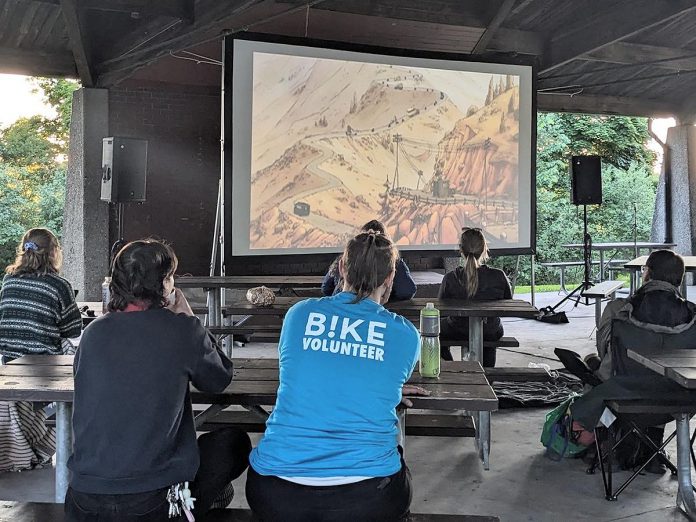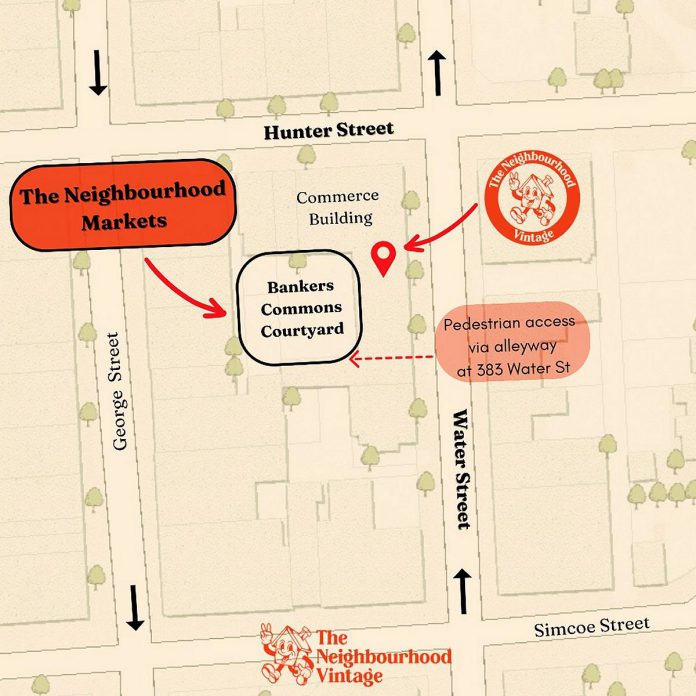While pickleball isn’t on the agenda for Peterborough City Council when it meets at 6 p.m. Monday (June 10), it will be for the Peterborough residents attending a rally outside of city hall a half hour before council meets.
The Save Bonnerworth Park group will be holding a so-called “Rally For Answers” as they continue to raise their voices against the planned $4.4 million redevelopment of the park at McDonnel Street and Monaghan Road, which includes the construction of 16 pickleball courts, an expanded skate park, a bike pump track, and an 80-vehicle parking lot.
Representing residents neighbouring the park, the group’s primary objections to the redevelopment plan include the noise impact that the 16 pickleball courts will have on their quality of life, the loss of their neighbourhood greenspace, and what they claim was a flawed process in terms of how the plan has been developed and communicated.
The first phase of the Bonnerworth Park redevelopment plan would see construction begin this fall on the pickleball court complex, including any landscaping and sound attenuation. The second phase of the redevelopment plan would see the expansion of the skateboard park and construction of the new bike pump track in 2025.
A media release for “Rally For Answers” provided by neighbourhood resident D’Arcy Jenish on behalf of the Coalition for Bonnerworth Park asks 16 questions — one for each proposed pickleball court — “that city council needs to answer.”
- Why does a city of 80,000 need the largest pickleball complex in Ontario?
- Who decided 16 courts is what the city needs and on what basis?
- Why pave a multi-use park and green space for an emerging sport that may be no more than passing fad?
- What is the membership of the Peterborough Pickleball Association?
- Do 6,700 signatures opposing the redevelopment matter to Council?
- Will the (Peterborough Pickleball Association) pay capital and usage fees as do other sports organizations?
- Why has the city not considered sites other than Bonnerworth?
- Why the urgency to build this development?
- Why not put kids first and build the bike track and skateboard park first?
- Why build 16 courts when other cities are closing courts due to noise complaints?
- Has the city a credible noise abatement plan?
- Are there any proven noise abatement systems?
- Has the city considered the potential for costly legal battles?
- Has the city conducted a geotechnical study to determine if the Bonnerworth playing field is a suitable site for the proposed development?
- Why does Councillor (Lesley) Parnell insist this is a “done deal” before light, noise and traffic studies have been completed?
- Why do we need a pickleball complex that is larger than any in the cities of Toronto, Mississauga, Hamilton, London, Windsor and Ottawa?
VIDEO: “Save Bonnerworth Park – The First Rally”
Monday’s rally will follow another held on May 18 at Bonnerworth Park that was organized by retired priest Father Leo Coughlin, a resident of the Marycrest at Inglewood seniors’ complex on Monaghan Road directly across from the park. That rally was attended by more than 250 people.
On April 8, Peterborough city council voted 8-3 against a motion from Town Ward councillor Joy Lachica to revisit the redevelopment plan in response to concerns of neighbouring residents primarily about the potential noise and traffic that would result from the large number of pickleball courts — clearing the way for the project to proceed in the hands of city staff with no further council oversight.
On May 13, Lachica put forward another motion that council be granted final approval authority for the redevelopment plan, including the recommended site plan and final technical studies such as traffic and parking, and noise. Committee chair Andrew Beamer ruled her motion out of order, a decision that was supported by a 6-5 vote.
The City of Peterborough recently posted a statement about the Bonnerworth Park redevelopment on its public consultation website, recognizing that “there’s been a lot of discussion about the Bonnerworth Park project over the last several months.”
“The city has heard from residents and stakeholder groups, with two main concerns being noise associated with pickleball and the amount of parking that is being contemplated for the Bonnerworth project, as well as comments by some that the ball diamonds are viewed as general greenspace that should not be replaced with other active use outdoor recreation facilities,” the statement reads.
“The city is doing the detailed design work and the necessary studies, including noise and traffic studies, which will inform the final design. Noise attenuation — the need to manage potential noise impacts — is included as part of the project budget.”
Calling the baseball fields at Bonnerworth Park “low-quality fields that are underutilized,” the city says their removal from the park “will be offset as the city has already started to invest in maintaining and adding capacity of baseball fields in other parks, with the ball diamond at Stacey Green Park upgraded ahead of this season and two more ball diamonds slated for upgrades for next year.”
As for the 16 pickleball courts, the statement says the city doesn’t have enough facilities to meet the demand for pickleball and that, “similar to how the city invests in soccer fields, football fields, basketball courts, tennis courts, multi-use facilities, and ice pads — and charges user fees to offset costs — this investment begins to address the recreational needs of city residents.”












































